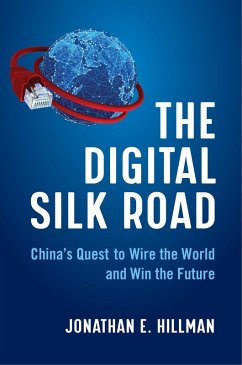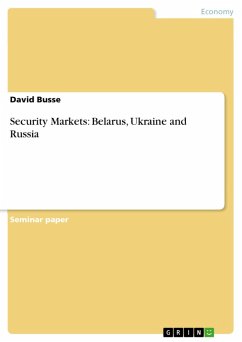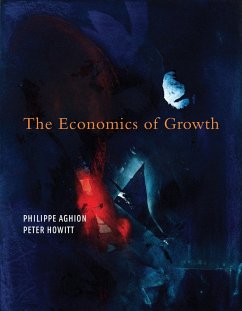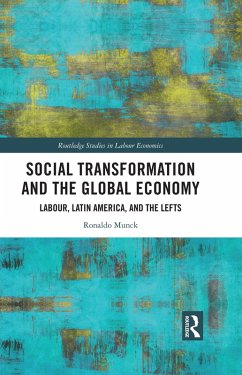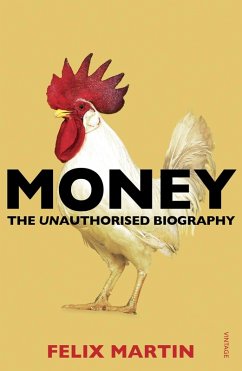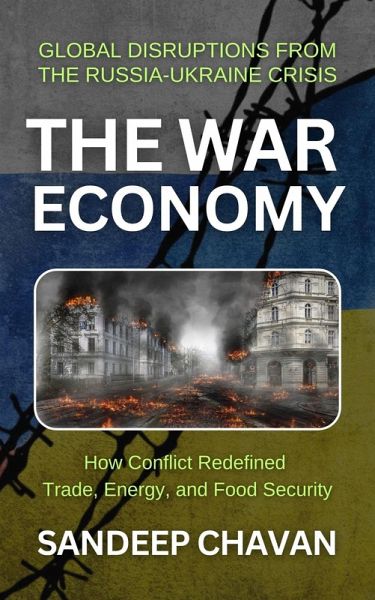
The War Economy (Echoes of War: The Russia-Ukraine Conflict and Its Global Ripples) (eBook, ePUB)

PAYBACK Punkte
0 °P sammeln!
In The War Economy: Global Disruptions from the Russia-Ukraine Crisis, author Sandeep Chavan offers a comprehensive analysis of how one of the 21st century's most significant conflicts has reshaped the global economic landscape. This book explores the far-reaching consequences of the Russia-Ukraine war, focusing on its cascading effects on trade, energy, and food security, while unraveling the vulnerabilities of a globalized world.The Russia-Ukraine war, initially perceived as a regional conflict, quickly revealed its global implications. It disrupted critical trade routes, destabilized energy...
In The War Economy: Global Disruptions from the Russia-Ukraine Crisis, author Sandeep Chavan offers a comprehensive analysis of how one of the 21st century's most significant conflicts has reshaped the global economic landscape. This book explores the far-reaching consequences of the Russia-Ukraine war, focusing on its cascading effects on trade, energy, and food security, while unraveling the vulnerabilities of a globalized world.
The Russia-Ukraine war, initially perceived as a regional conflict, quickly revealed its global implications. It disrupted critical trade routes, destabilized energy markets, and created ripple effects that impacted everything from inflation to supply chains. This book delves into these disruptions, offering a deep exploration of their causes, consequences, and long-term implications for the global economy.
Chavan examines how the conflict redefined global trade by shifting alliances, creating new regional powerhouses, and forcing nations to rethink their dependency on traditional partners. The energy crisis, exacerbated by sanctions on Russia, exposed the fragility of Europe's energy policies and accelerated the global transition toward renewable resources. Meanwhile, disruptions to Ukraine's agricultural exports sparked concerns over food security, particularly in developing nations that rely heavily on imports of grains and sunflower oil.
Beyond analyzing these critical issues, The War Economy also explores the adaptive strategies of nations, businesses, and institutions. It highlights the emergence of regional trade blocs, the role of technology in mitigating economic risks, and the resilience of supply chains under pressure. Through case studies, expert insights, and actionable takeaways, the book provides a roadmap for navigating economic uncertainty in a fragmented world.
This book is not just a chronicle of the economic fallout from the war but also a reflection on the interconnectedness of global systems and the urgent need for cooperation and resilience. Chavan challenges readers to rethink globalization, interdependence, and the role of innovation in addressing economic disruptions.
The War Economy is essential reading for policymakers, business leaders, academics, and anyone seeking to understand the economic reverberations of the Russia-Ukraine crisis and how they shape the future of global trade, energy, and food security. With clarity, depth, and a forward-looking perspective, Chavan offers an invaluable guide to thriving in an era of economic uncertainty and geopolitical realignment.
The Russia-Ukraine war, initially perceived as a regional conflict, quickly revealed its global implications. It disrupted critical trade routes, destabilized energy markets, and created ripple effects that impacted everything from inflation to supply chains. This book delves into these disruptions, offering a deep exploration of their causes, consequences, and long-term implications for the global economy.
Chavan examines how the conflict redefined global trade by shifting alliances, creating new regional powerhouses, and forcing nations to rethink their dependency on traditional partners. The energy crisis, exacerbated by sanctions on Russia, exposed the fragility of Europe's energy policies and accelerated the global transition toward renewable resources. Meanwhile, disruptions to Ukraine's agricultural exports sparked concerns over food security, particularly in developing nations that rely heavily on imports of grains and sunflower oil.
Beyond analyzing these critical issues, The War Economy also explores the adaptive strategies of nations, businesses, and institutions. It highlights the emergence of regional trade blocs, the role of technology in mitigating economic risks, and the resilience of supply chains under pressure. Through case studies, expert insights, and actionable takeaways, the book provides a roadmap for navigating economic uncertainty in a fragmented world.
This book is not just a chronicle of the economic fallout from the war but also a reflection on the interconnectedness of global systems and the urgent need for cooperation and resilience. Chavan challenges readers to rethink globalization, interdependence, and the role of innovation in addressing economic disruptions.
The War Economy is essential reading for policymakers, business leaders, academics, and anyone seeking to understand the economic reverberations of the Russia-Ukraine crisis and how they shape the future of global trade, energy, and food security. With clarity, depth, and a forward-looking perspective, Chavan offers an invaluable guide to thriving in an era of economic uncertainty and geopolitical realignment.
Dieser Download kann aus rechtlichen Gründen nur mit Rechnungsadresse in A, B, CY, CZ, D, DK, EW, E, FIN, F, GR, H, IRL, I, LT, L, LR, M, NL, PL, P, R, S, SLO, SK ausgeliefert werden.




